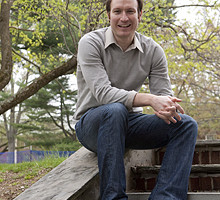
Reviews
This is an excellent book, and one that will appeal not just to lovers of poetry but to historians of the Empire and sociologists who study trans-national influences.
Sounding Imperial is a very readable book. It will be mainly of interest to students and scholars of English literature and history.
James Mulholland has produced an important new study of eighteenth-century British poetry...
James Mulholland's Sounding Imperial: Poetic Voice and the Politics of Empire, 1730–1820 brings the context of British imperialism to Romantic-era poetics, illuminating the concerns of orientalism within the history of print culture.
What Sounding Imperial tells us about colonialism and culture is that we need to look again at their relationship with fresh eyes.
Mulholland's superbly composed book reanimates eighteenth-century visions of poetic practices 'elsewhere' and details their shaping role in British poetics. His account of the remaking of oral or folk traditions within the conventions of poetry links poetic voice to the cultural exigencies of empire in remarkably inventive ways; this book will reenergize the study of eighteenth-century British poetry.
Discovering poetry that is 'barbaric, vast, and wild,' James Mulholland corrects the massive prose bias evident in postcolonial studies of the British Empire. Sounding Imperial compellingly explains how poetic archaism, lyrical inauthenticity, and ethnic impersonation inflect the strange and distant voices that reconsolidate the national via the bardic and the oriental.
James Mulholland's Sounding Imperial is an impressive contribution, recovering in the eighteenth-century 'fantasy of unmediated voices' a tradition of experimental poetry. Mulholland persuasively articulates an emergent global poetics; his meditations on print, the performed voice, impersonation, and transnational poetics help to redraw the cultural map. Incisive and elegant.
Book Details
List of Illustrations
Acknowledgments
Introduction: The Global Aesthetics of Poetic Voice
1. Thomas Gray, Virtual Authorship, and the Performed Voice
Authoring Gray's "Elegy"
Performing Gray's "Elegy"
Imper
List of Illustrations
Acknowledgments
Introduction: The Global Aesthetics of Poetic Voice
1. Thomas Gray, Virtual Authorship, and the Performed Voice
Authoring Gray's "Elegy"
Performing Gray's "Elegy"
Impersonating the Bard?
Wildness and Welsh Prosody
Quotation Marks
(Un)Editing the Bards
2. Wales, Public Poetry, and the Politics of Collective Voice
Bardic Nationalism Reconsidered
The Aboriginal Aesthetics of Iolo Morganwg
Listening to the Welsh Past
Dead Voices Reanimated
3. Scotland and the Invention of Voice
Primitive Passions, Poetry Addiction, History
Ambiguous Speech
Writing, Re- performance, and Restored Voices
Intimate Hailing
Ossian's Afterlife
4. Impersonating Native Voices in Anglo- Indian Poetry
William Jones and the Fountainhead of Verse
Making the Subaltern Speak
Rewriting Gray's "The Bard" in India
Dislocated Orientalism
Coda: Reading the Archive of the Inauthentic
Notes
Bibliography
Index






